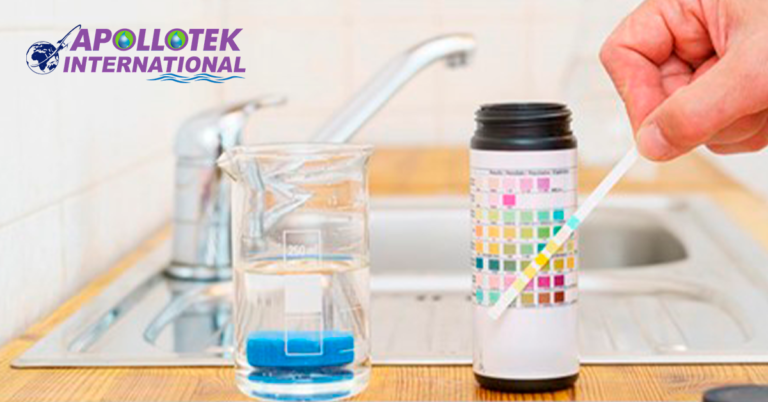

Water, composed of hydrogen and oxygen, requires specific components and conditions to be considered suitable for human consumption. Among these requirements is the pH of water, which must fall within certain values for people to drink it.
Fortunately, the pH of water can be measured and adjusted if it is not within established standards. So, let’s understand what water pH is, when it is suitable for drinking, and other important details to consider.
WHAT IS THE PH OF WATER?
pH is a measure of the alkalinity or acidity of an aqueous solution in general terms. In water, pH determines the concentration of hydrogen ions, hence the acronym: potential of hydrogen ions. pH is measured using a logarithmic scale ranging from 0 to 14, where each point represents a tenfold change in acidity. In other words, a pH of 1 is ten times more acidic than a pH of 2.
The water pH test can determine the alkalinity or acidity of water, with the neutral value being 7 on the scale. To get an idea of the pH of other common liquids, distilled pure water has a pH of 7, lemon juice is around 1, and bleach is approximately 13.
Maintaining stable water pH ensures the safety of its consumption and prevents potential serious problems. Altering water pH can change the concentration of other substances, making it toxic. For example, a decrease in pH can increase the amount of soluble mercury in water. This also affects organisms and microorganisms living in water, as many chemical reactions require a specific pH for survival and growth.
Various methods exist to analyze the pH of water and aqueous liquids in general:
Changes in pH can occur for various reasons, broadly categorized into two groups:
The main problem with maladjusted pH is that water may become toxic, as seen in the example of high mercury presence. This can lead to issues in the body, with water being more harmful the more acidic its pH is. Gastrointestinal symptoms are the first to appear, but heavy metal poisoning is more challenging to detect and more severe.
The optimal pH of water for human consumption, i.e., drinking water, can vary between 6.5 and 9.5. In Spain, water consumed through taps typically has a pH around 7.7, making it practically neutral. In places where tap water is more alkaline, systems can be installed to treat water and adjust pH, such as reverse osmosis (reverse osmosis water has a pH of approximately 6.5). Well water for drinking should have pH levels between 7 and 8.5. Although frequent checks are conducted, official bodies ensure that consumed water falls within acceptable values, both for pH and other components.

Apollotek International, Inc. extends an invitation to you to join the thousands of satisfied customers who enjoy the finest quality alkaline water. We have recently introduced new water filtration products with unique technology to our industry. Discover excellence in every drop.
Commercial Product Request
If you are interested in receiving equipment details and price information,
please send us your contact information, and a sales representative will
contact you shortly.
If you are considering the benefits of a home water filtration system and you are a homeowner, you may qualify for a free in-home water analysis.